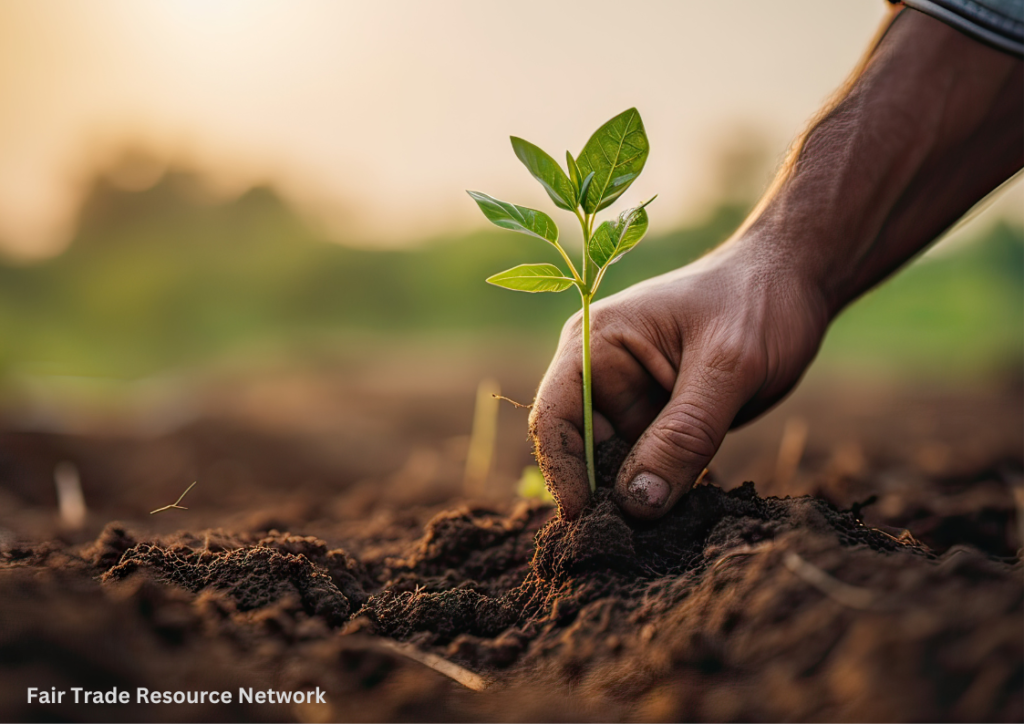
In today’s world, where we face serious environmental problems, it’s more important than ever to adopt farming practices that are both sustainable and ethical. Fair trade initiatives, which emphasize treating farmers fairly and taking care of the environment, are crucial in making this change happen.
This article looks into how fair trade and protecting biodiversity are connected, showing how these initiatives are helping to preserve ecosystems and endangered species through sustainable farming methods.
Why is Biodiversity Conservation Important?
Before delving into fair trade’s role in biodiversity conservation, it’s crucial to understand why biodiversity conservation is essential. Biodiversity encompasses all life on Earth, from the smallest organisms to the biggest mammals and everything in between. The web of life sustains ecosystems, providing us with clean air, fresh water, food, medicine, and countless other ecosystem services.
Biodiversity also plays a critical role in stabilizing the climate, as diverse ecosystems absorb and store carbon dioxide, helping mitigate the effects of climate change. Moreover, it serves as a genetic reservoir, offering potential solutions to agricultural challenges and medical breakthroughs. Unfortunately, human activities severely threaten biodiversity, including pollution, deforestation, habitat destruction, and exploitation of natural resources.
How Agriculture Contributes to Biodiversity Loss?
Agriculture, as one of the primary drivers of biodiversity loss, profoundly impacts ecosystems and species. Conventional agricultural practices often prioritize high yields and profit margins over environmental sustainability. This has led to widespread deforestation, excessive pesticide and fertilizer use, and monoculture farming, all of which harm biodiversity.
For instance, the cultivation of cash crops like coffee, cocoa, and palm oil has resulted in extensive deforestation and habitat destruction in many tropical regions, endangering iconic species like orangutans and jaguars. Unsustainable farming practices also lead to soil erosion, water pollution, and the loss of essential pollinators such as bees and butterflies.
Fair Trade Principles
Fair trade, in contrast to conventional agriculture, is rooted in principles that emphasize fairness, social responsibility, and environmental sustainability. These principles guide fair trade organizations, ensuring that producers, often small-scale farmers in developing countries, receive fair compensation for their labor and adhere to environmentally friendly practices.
Fundamental fair trade principles include:
- Fair Prices: Producers are paid a fair price for their products, ensuring they can cover production costs and improve their living standards.
- Fair Labor Conditions: Workers are provided with safe working conditions, fair wages, and the ability to organize and collectively bargain.
- Direct Trade: Many fair trade organizations establish direct relationships with producers, bypassing exploitative intermediaries and promoting transparency.
- Environmental Sustainability: Fair trade encourages sustainable farming practices that protect ecosystems and promote biodiversity conservation.
Fair Trade and Biodiversity Conservation
One of the most significant ways fair trade contributes to biodiversity conservation is by promoting sustainable agricultural practices. Here’s how fair trade initiatives achieve this:
Agroforestry Practices: Many fair trade products, such as coffee and cacao, are grown under shade trees in a practice known as agroforestry. This approach mimics natural ecosystems, providing habitat for wildlife, enhancing soil fertility, and reducing the need for harmful pesticides and fertilizers.
Organic Farming: Fair trade standards often require producers to follow organic farming practices. Organic agriculture eschews synthetic chemicals and promotes natural pest control methods, which are less environmentally harmful.
Habitat Preservation: Fair trade organizations frequently invest in reforestation and habitat preservation projects. This helps conserve biodiversity and mitigates climate change by sequestering carbon.
Education and Training: Fair trade initiatives train farmers in sustainable farming methods. This empowers them to make informed decisions that benefit their livelihoods and the environment.
Examples of Biodiversity Conservation Through Fair Trade
Let’s look at a few real-world examples of how fair trade initiatives have made a positive impact on biodiversity conservation:
Fair Trade Coffee in Mexico: Fair trade coffee cooperatives have embraced shade-grown coffee practices in the Chiapas region of Mexico. This not only improves the quality of coffee but also protects critical bird habitats, making it a win-win for both farmers and wildlife.
Fair Trade Cocoa in Ghana: Fair trade cocoa cooperatives in Ghana have adopted organic farming methods and reforestation efforts. This has improved cocoa quality and preserved the habitats of endangered species like the West African dwarf crocodile.
Fair Trade Bananas in Ecuador: Fair trade banana plantations in Ecuador have implemented sustainable farming practices, reducing pesticide use and protecting water quality. These efforts have helped safeguard ecosystems and aquatic life in the surrounding areas.
Challenges and Future Directions
While fair trade initiatives offer a promising path toward biodiversity conservation, they face several challenges. Scaling up fair trade can be difficult, and there is a need for greater consumer awareness and support. Additionally, certification and monitoring processes must be robust to uphold fair trade standards.
To further enhance the impact of fair trade on biodiversity conservation, cooperation between governments, NGOs, and the private sector is essential. Policies incentivizing sustainable agriculture and protecting natural habitats complement fair trade efforts. Moreover, consumers can play a pivotal role by choosing fair trade products and advocating for sustainable and ethical consumption.
